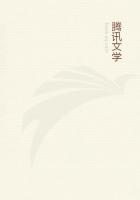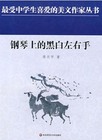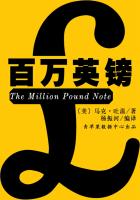Whether the human mind can advance or not, is a question too little discussed, for nothing can be more dangerous than to found our social philosophy on any theory which is debatable but has not been debated. But if we assume, for the sake of argument, that there has been in the past, or will be in the future, such a thing as a growth or improvement of the human mind itself, there still remains a very sharp objection to be raised against the modern version of that improvement. The vice of the modern notion of mental progress is that it is always something concerned with the breaking of bonds, the effacing of boundaries, the casting away of dogmas. But if there be such a thing as mental growth, it must mean the growth into more and more definite convictions, into more and more dogmas. The human brain is a machine for coming to conclusions; if it cannot come to conclusions it is rusty.
When we hear of a man too clever to believe, we are hearing of something having almost the character of a contradiction in terms.
It is like hearing of a nail that was too good to hold down a carpet; or a bolt that was too strong to keep a door shut.
Man can hardly be defined, after the fashion of Carlyle, as an animal who makes tools; ants and beavers and many other animals make tools, in the sense that they make an apparatus. Man can be defined as an animal that makes dogmas. As he piles doctrine on doctrine and conclusion on conclusion in the formation of some tremendous scheme of philosophy and religion, he is, in the only legitimate sense of which the expression is capable, becoming more and more human.
When he drops one doctrine after another in a refined scepticism, when he declines to tie himself to a system, when he says that he has outgrown definitions, when he says that he disbelieves in finality, when, in his own imagination, he sits as God, holding no form of creed but contemplating all, then he is by that very process sinking slowly backwards into the vagueness of the vagrant animals and the unconsciousness of the grass. Trees have no dogmas.
Turnips are singularly broad-minded.
If then, I repeat, there is to be mental advance, it must be mental advance in the construction of a definite philosophy of life. And that philosophy of life must be right and the other philosophies wrong.
Now of all, or nearly all, the able modern writers whom I have briefly studied in this book, this is especially and pleasingly true, that they do each of them have a constructive and affirmative view, and that they do take it seriously and ask us to take it seriously.
There is nothing merely sceptically progressive about Mr. Rudyard Kipling.
There is nothing in the least broad minded about Mr. Bernard Shaw.
The paganism of Mr. Lowes Dickinson is more grave than any Christianity.
Even the opportunism of Mr. H. G. Wells is more dogmatic than the idealism of anybody else. Somebody complained, I think, to Matthew Arnold that he was getting as dogmatic as Carlyle.
He replied, "That may be true; but you overlook an obvious difference.
I am dogmatic and right, and Carlyle is dogmatic and wrong."The strong humour of the remark ought not to disguise from us its everlasting seriousness and common sense; no man ought to write at all, or even to speak at all, unless he thinks that he is in truth and the other man in error. In similar style, I hold that I am dogmatic and right, while Mr. Shaw is dogmatic and wrong. But my main point, at present, is to notice that the chief among these writers I have discussed do most sanely and courageously offer themselves as dogmatists, as founders of a system. It may be true that the thing in Mr. Shaw most interesting to me, is the fact that Mr. Shaw is wrong.
But it is equally true that the thing in Mr. Shaw most interesting to himself, is the fact that Mr. Shaw is right. Mr. Shaw may have none with him but himself; but it is not for himself he cares.
It is for the vast and universal church, of which he is the only member.
The two typical men of genius whom I have mentioned here, and with whose names I have begun this book, are very symbolic, if only because they have shown that the fiercest dogmatists can make the best artists.
In the fin de siecle atmosphere every one was crying out that literature should be free from all causes and all ethical creeds.
Art was to produce only exquisite workmanship, and it was especially the note of those days to demand brilliant plays and brilliant short stories.
And when they got them, they got them from a couple of moralists.
The best short stories were written by a man trying to preach Imperialism.
The best plays were written by a man trying to preach Socialism.
All the art of all the artists looked tiny and tedious beside the art which was a byproduct of propaganda.
The reason, indeed, is very simple. A man cannot be wise enough to be a great artist without being wise enough to wish to be a philosopher.
A man cannot have the energy to produce good art without having the energy to wish to pass beyond it. A small artist is content with art; a great artist is content with nothing except everything.
So we find that when real forces, good or bad, like Kipling and G. B. S., enter our arena, they bring with them not only startling and arresting art, but very startling and arresting dogmas. And they care even more, and desire us to care even more, about their startling and arresting dogmas than about their startling and arresting art.
Mr. Shaw is a good dramatist, but what he desires more than anything else to be is a good politician. Mr. Rudyard Kipling is by divine caprice and natural genius an unconventional poet;but what he desires more than anything else to be is a conventional poet.
He desires to be the poet of his people, bone of their bone, and flesh of their flesh, understanding their origins, celebrating their destiny.
He desires to be Poet Laureate, a most sensible and honourable and public-spirited desire. Having been given by the gods originality--that is, disagreement with others--he desires divinely to agree with them.















